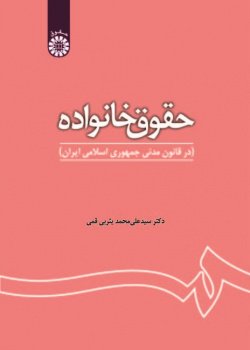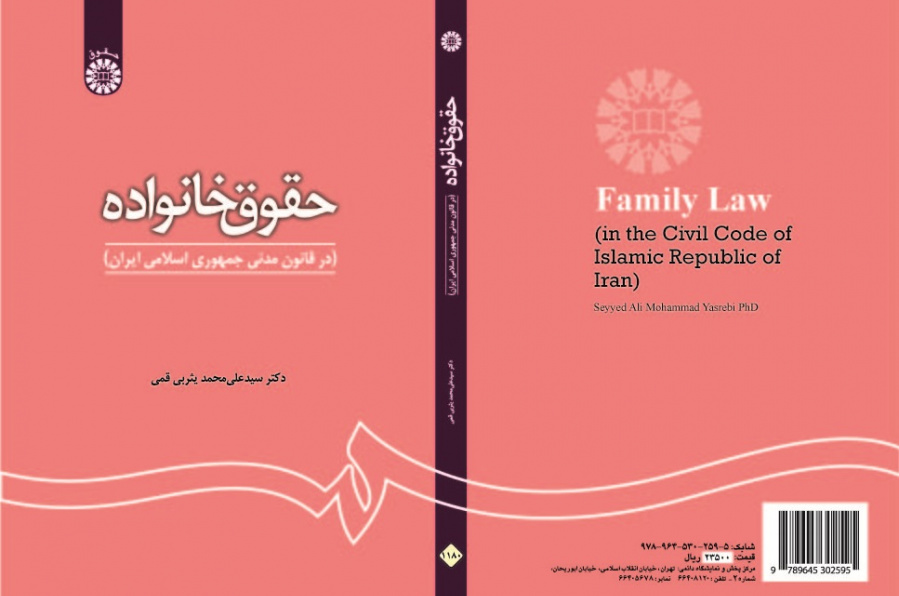

Family Law (in the Civil Code of Islamic Republic of Iran)
No clear definition is provided for family neither in the civil law nor in other law of Iran, but, with respect to the various rules and regulations, it can be defined both in general (expansive) and specific (limited) senses. Family in its specific meaning, so-called nuclear family in sociology refers to a couple and their children who usually live together. The Article 1105 of Civil Law refers to this definition and is rooted in the truly legal marriage. Family can also convey a broader concept, while considering inheritance classes (Article No. 862 of Civil Law) and the necessity of giving maintenance (Article 1196 of Civil Law) and the guardianship of paternal grandfather (Article No.1181 of Civil Law). Moreover, by considering the genealogical, in-law, and foster-relatives, a far more general concept will be made (Article No.1031-1046 of Civil Law), which is called the extended family system.
In the introductory chapter of the Constitution, family is explained as “family is the most basic unit in a society and it is the very core of the human beings’ growth and development. The ideological and idealistic agreement of beginning a family underlies the human beings’ development and growth, and is a basic principle. And of course, providing an opportunity to reach this goal is one of the major responsibilities of the Islamic government. In Article 10 of the Constitution, it is read: “since the family is the most fundamental unit of the Islamic community, all the related rules, regulations and planning should be made in such a way to more simplify the beginning of a family, to safeguard its sacredness and to reinforce family relations based on the Islamic law.
The present book is provided in three sections and 16 chapters. The first section specifically deals with ‘marriage’. Some issues, among others, are discussed in this section as marriage proposal; health qualification for marriage; marriage Laimpediments; conditions of a sound marriage; representations in marriage; the marriage in which the portion settled upon to wife is cut; the rights and duties of couples in marriage; and the extra conditions made in the marriage contract. The second section under the title of ‘termination of marriage contract’ includes the
following subjects consecutively: the conditions of marriage dissolution; divorce; and the time period during which a divorced or widowed woman may not be married to another man. The subject matter ‘children’ is reviewed in the third section. In this section issues as parentage; keeping and breeding the children; guardianship and obligation of maintenance are explained in more detail.
Compiled for the students of law as the main textbook for the course “Family Civil Law”, this book addresses issues including marriage, divorce, and children.





